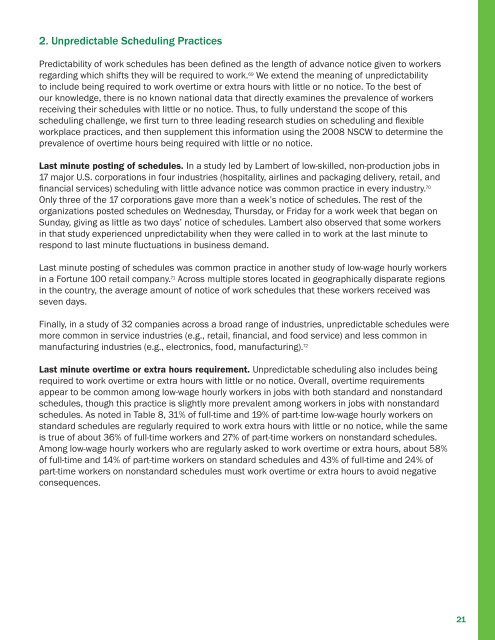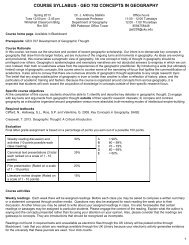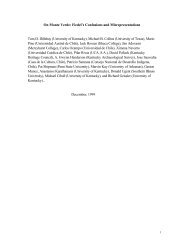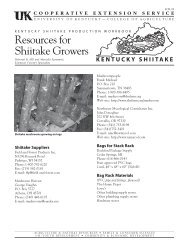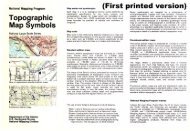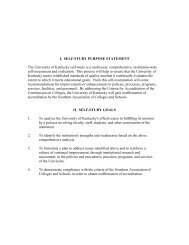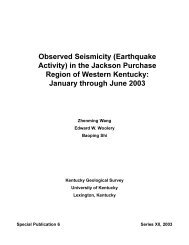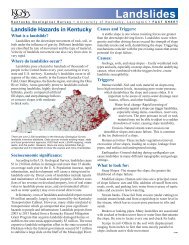Flexible Workplace Solutions for Low-Wage Hourly Workers
Flexible Workplace Solutions for Low-Wage Hourly Workers
Flexible Workplace Solutions for Low-Wage Hourly Workers
Create successful ePaper yourself
Turn your PDF publications into a flip-book with our unique Google optimized e-Paper software.
2. Unpredictable Scheduling Practices<br />
Predictability of work schedules has been defi ned as the length of advance notice given to workers<br />
regarding which shifts they will be required to work. 69 We extend the meaning of unpredictability<br />
to include being required to work overtime or extra hours with little or no notice. To the best of<br />
our knowledge, there is no known national data that directly examines the prevalence of workers<br />
receiving their schedules with little or no notice. Thus, to fully understand the scope of this<br />
scheduling challenge, we fi rst turn to three leading research studies on scheduling and fl exible<br />
workplace practices, and then supplement this in<strong>for</strong>mation using the 2008 NSCW to determine the<br />
prevalence of overtime hours being required with little or no notice.<br />
Last minute posting of schedules. In a study led by Lambert of low-skilled, non-production jobs in<br />
17 major U.S. corporations in four industries (hospitality, airlines and packaging delivery, retail, and<br />
fi nancial services) scheduling with little advance notice was common practice in every industry. 70<br />
Only three of the 17 corporations gave more than a week’s notice of schedules. The rest of the<br />
organizations posted schedules on Wednesday, Thursday, or Friday <strong>for</strong> a work week that began on<br />
Sunday, giving as little as two days’ notice of schedules. Lambert also observed that some workers<br />
in that study experienced unpredictability when they were called in to work at the last minute to<br />
respond to last minute fl uctuations in business demand.<br />
Last minute posting of schedules was common practice in another study of low-wage hourly workers<br />
in a Fortune 100 retail company. 71 Across multiple stores located in geographically disparate regions<br />
in the country, the average amount of notice of work schedules that these workers received was<br />
seven days.<br />
Finally, in a study of 32 companies across a broad range of industries, unpredictable schedules were<br />
more common in service industries (e.g., retail, fi nancial, and food service) and less common in<br />
manufacturing industries (e.g., electronics, food, manufacturing). 72<br />
Last minute overtime or extra hours requirement. Unpredictable scheduling also includes being<br />
required to work overtime or extra hours with little or no notice. Overall, overtime requirements<br />
appear to be common among low-wage hourly workers in jobs with both standard and nonstandard<br />
schedules, though this practice is slightly more prevalent among workers in jobs with nonstandard<br />
schedules. As noted in Table 8, 31% of full-time and 19% of part-time low-wage hourly workers on<br />
standard schedules are regularly required to work extra hours with little or no notice, while the same<br />
is true of about 36% of full-time workers and 27% of part-time workers on nonstandard schedules.<br />
Among low-wage hourly workers who are regularly asked to work overtime or extra hours, about 58%<br />
of full-time and 14% of part-time workers on standard schedules and 43% of full-time and 24% of<br />
part-time workers on nonstandard schedules must work overtime or extra hours to avoid negative<br />
consequences.<br />
21


